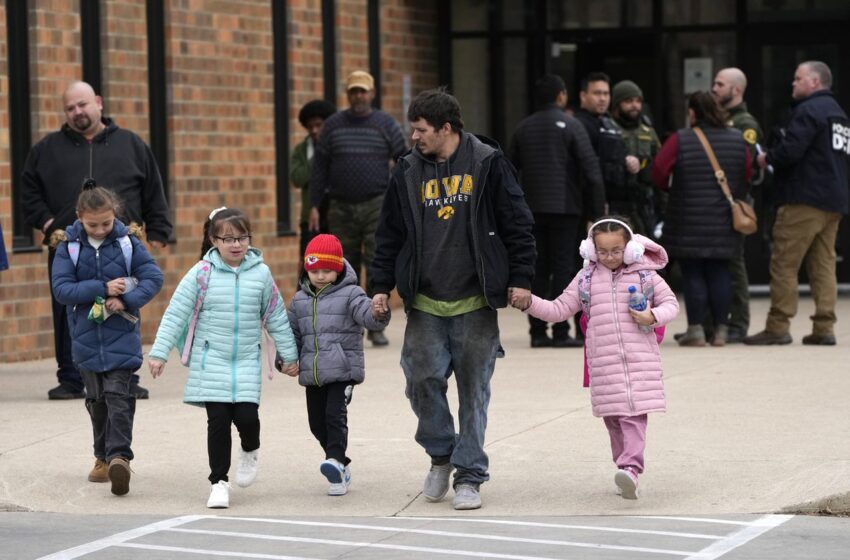
The Gentle Parenting Bust – What Millennial Parents Are Getting Wrong
Gentle parenting has become a huge trend among young parents. It has even spawned an entire genre of TikTok videos. Gentle parenting is all about understanding and meeting your child where they are at. It often involves empathizing and helping them through dangerous situations. However, there are some things that gentle parenting fails to address.
1. They’re ignoring their own needs
Gentle parenting proponents claim their approach produces securely attached kids who are self-possessed and emotionally attuned, and developmental psychology research seems to back those claims up. But when that parenting philosophy veers off course, it can lead to a host of problems, including children who are unable to face their own mistakes, kids whose screen time is so out of control they can’t even read or write, and parents whose servile devotion to their children creates an atmosphere of entitlement and low self-esteem.
Millennials have co-opted Gentle Parenting, but they also misunderstand it. As Business Insider has reported, multiple gentle parenting creators have complained that viewers are misinterpreting their methods as too lenient and are raising kids with no boundaries. This is what’s called Snowplow Parenting, and it results in discontented, lazy, unregulated kids.
The underlying issue is that many millennial parents have a hard time setting their own boundaries, especially in the face of a crowded field of social media influencers and parenting experts. It’s easy to get lost in the weeds, with countless strategies and buzzwords bouncing around your head, and it’s difficult to know what rules are best when your child is kicking sand at their sibling in the grocery store or refusing to take no for an answer. It’s a short journey from validating your child’s feelings to letting them cause mayhem, and it can leave you drained and frustrated.
2. They’re relying on their parents for answers
Gentle parenting is a popular approach to raising children that leans towards a hands-off approach. But when parents take this approach too far, it can be detrimental to their kids. Helicopter parenting is an extreme form of the technique that leads to overprotective and controlling behavior. It can also lead to a lack of discipline and screen dependencies. Millennial parents are often guilty of helicopter parenting, as they’re more likely to monitor their child’s social media and internet use.
While some millennial parents are embracing the parenting style, others are taking it too far and becoming helicopter parents. This can have a negative impact on your children, especially when they’re older. They’ll struggle with a lack of independence, feel less confident, and may develop anxiety disorders or depression.
When it comes to raising children, there’s no playbook that fits all families. Instead, each generation tries to find their own way. But if you’re a millennial parent, there are some things you should avoid to ensure your children grow up happy and healthy.
Millennials are getting a lot of backlash for their parenting skills, and some of it is well-deserved. But some people are trying to break the cycle by promoting more positive images of millennials as parents. For example, one TikTok from an elementary school teacher went against the grain of online backlash by complimenting Gen Alpha on their emotional intelligence and praising their parents for breaking toxic generational cycles.
3. They’re ignoring their own emotions
If millennial moms aren’t getting enough sleep, finding a good childcare provider, or even just surviving their kids’ tantrums and food fights on a regular basis, it may not be entirely because of the work. It could be the way they’re parenting them, too.
The gentle-parenting movement has exploded on TikTok, where parents share videos of their home implementations of the philosophy. Generally speaking, gentle parenting aims to be the conscientious middle ground between baby-wearing, organic-puree-making boomers and free-range parents who don’t believe in rules or discipline. Its goal is to validate a child’s emotions, help them strategize their ways out of distress, and let natural consequences teach them instead of lecturing or punishing.
But like any popular trend, it can be abused. Often, millennials who subscribe to the concept drift into permissiveness and end up raising children who are self-centered, entitled, and unable to cope with their feelings. They also don’t learn how to deal with conflict or disagreement, which can lead to problems later in life.
But the underlying issue here is that many millennials are desperately in need of many things—livable wages, family leave, and a solution to their student debt, to name just a few. As a result, they’re overcompensating with indulging their children’s emotions. They treat their children like best friends rather than as their own children, and it’s not working.
4. They’re ignoring their own needs
If you’re a parent, you know that there are plenty of ways to get it all wrong. You might skip out on happy hour with your friends when you’re supposed to be feeding your baby, for example, or allow your child to drink hot coffee before they’re potty trained. But the things that people point to as millennial parenting missteps usually go beyond that kind of infraction.
Millennial parents often try to set themselves apart from previous generations with their gentle parenting approach, which is characterized by the use of communication and empathy to help kids learn rather than harsh discipline methods like spanking or yelling. However, the open-ended guidelines laid out by gentle parenting authors and influencers can be confusing and make hard behavioral limits difficult to outline and enforce.
As a result, gentle parents can become permissive and enable their children to rely on them for answers to all of life’s big and little questions. Especially as many millennials were raised by parents who struggled to support themselves during the Great Recession, this can be a problem.
In an attempt to break cycles of trauma and poor coping skills, millennials may be overcompensating by letting their children do whatever they want. However, this is a dangerous way to raise young children because it can lead them to believe that they can’t solve their own problems and won’t have to work for what they want in life.







